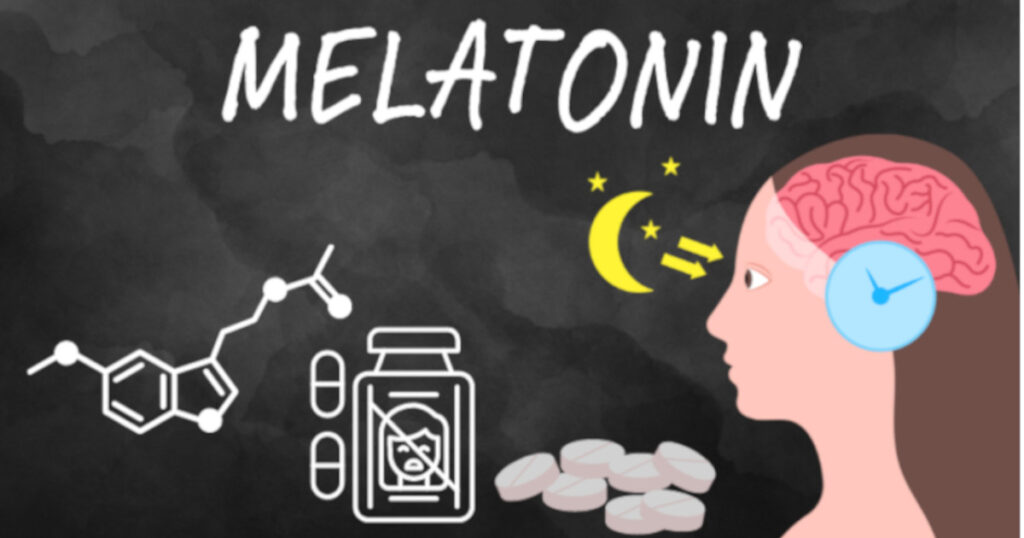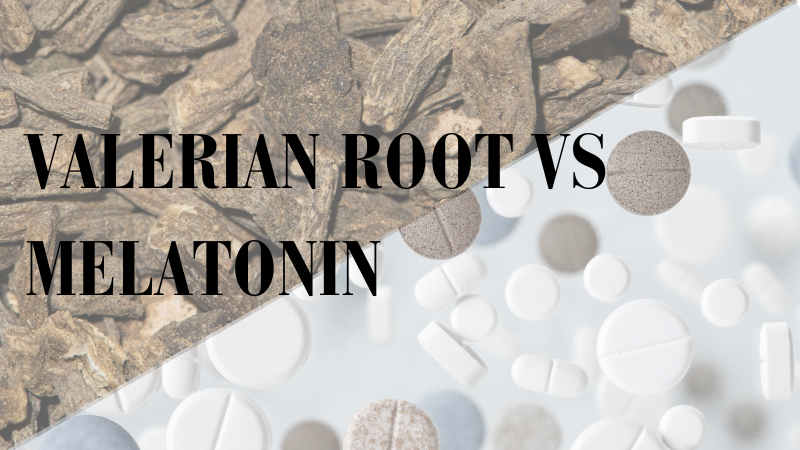Do you find yourself staring at the ceiling long after you’ve turned off the lights, wishing for the embrace of sleep that seems just out of reach? If so, you’re part of a growing number of individuals searching for effective, natural ways to improve their sleep. Among the myriad of options available, two names often rise to the top of the list: valerian root and melatonin. The question is, in the battle of valerian root vs melatonin, which contender wins the title of the best natural sleep aid?
In this interesting article, we’ll dig more into the pros and cons of each, backed by scientific evidence and expert opinions. We aim to provide you with the knowledge you need to choose the sleep aid that aligns with your lifestyle and health needs.
If you’re eager to unlock the secret to rejuvenating sleep and wake up feeling refreshed and ready to conquer the day, you won’t want to miss what comes next. Let’s embark on this journey to better sleep together.
Table of Contents
Valerian Root: Side Effects and Benefits
Valerian root comes from the valerian plant, scientifically known as Valeriana officinalis. This plant is native to parts of Europe and Asia but is also now grown in North America.
The root of the valerian plant is the part most commonly used for its various applications. It has a long history of use and is often recognised for its strong, earthy odour.1
Valerian root is also known by other names such as “all-heal” and “garden heliotrope,” reflecting its wide range of traditional uses. While it’s most commonly associated with sleep and relaxation, the root has been utilised for various purposes throughout history.
The Multifaceted Benefits of Valerian Root
Before diving into the nitty-gritty of the advantages of valerian root vs melatonin, it’s worth noting that this ancient herb has been a go-to remedy for various ailments for thousands of years. Its versatility in promoting well-being is truly remarkable.
Calming Effects on the Body
Valerian root has been traditionally used for its sedative and anxiolytic effects. The calming effects of valerian root on the physical body, especially concerning the muscles, can be attributed to its interaction with adenosine receptors. Adenosine is a neurotransmitter that plays a role in promoting sleep and relaxation. Valerian root contains compounds that can bind to adenosine receptors, leading to muscle relaxation and a reduction in muscle tension.2
This mechanism is distinct from the action of many other sedatives that primarily target the GABA system. By influencing the adenosine pathway, valerian root offers a unique approach to inducing relaxation and alleviating muscle discomfort without directly affecting the GABA system.
May Improve Sleep Quality
Valerian root is widely recognised for its ability to enhance sleep quality.
Valerian root has been studied for its potential to enhance sleep quality, as highlighted in the National Library of Medicine article. Valerian root can reduce the time it takes to fall asleep and increase overall sleep duration. These effects are believed to be due to its interaction with the gamma-aminobutyric acid (GABA) system.
Stress and Anxiety Reduction
Valerian root has been shown to significantly improve symptoms of state anxiety in hemodialysis patients Dr. M. Tammadon, et al, stated compounds in the valerian root interact with neurotransmitters in the brain, such as GABA, to reduce central nervous system activity. This leads to a calming effect, making valerian root an effective natural remedy for reducing stress and anxiety.3
However, it is worth discussing with your Doctor to ensure that you avoid any potential conflicts with existing medication if you’re planning to take valerian root.
The Flip Side: Side Effects of Valerian Root
While valerian root is celebrated for its numerous health benefits, it is essential to be aware of its potential side effects. Many say that knowledge is power, and understanding the full picture can help you make an informed decision.
- Dizziness and Headaches
- Valerian root can sometimes lead to dizziness or headaches, particularly when consumed in large doses. 4
- Liver Toxicity
- Although it is not common, cases of liver damage have been linked to valerian root, particularly when used in conjunction with other herbal treatments. However, it remains unclear whether the valerian root itself is the culprit or if contaminants in lower-grade valerian products are to blame. 5
- Upset Stomach
- A study conducted by Dr. Bent, et al, which was funded by way of a grant from the National Center for Complementary and Alternative Medicine, spaned 28 days and involved 391 participants receiving different herbal sleep aids. 18% of those who were administered valerian root reported an uptick in diarrhea. This was in contrast to just 8% in the group that received a placebo.6
If you’re intrigued by valerian root’s calming, stress-reducing powers and aware of the side effects, you’re in for a treat. Come with us on a journey that dives even deeper into considering the question ‘What’s Valerian root good for?‘.
Why does Valerian Root Make You Sleepy?
Valerian root induces sleepiness due to its interaction with neurotransmitters in the brain, particularly gamma-aminobutyric acid (GABA).
The compounds in valerian root, such as valepotriates and valerenic acid, increase GABA concentrations, leading to reduced central nervous system activity. Valepotriates act by inhibiting the breakdown of GABA in the brain, leading to increased GABA concentrations 7
On the other hand, valerenic acid functions as a modulator of GABAA receptors, enhancing the influx of chloride ions when GABA binds to its receptor, which in turn potentiates the inhibitory effects of GABA in the nervous system.
This calming effect on the nervous system is what makes valerian root an effective natural remedy for promoting sleep.
How Valerian Root Alleviates Anxiety: Real Experiences, Real Relief
When it comes to anxiety relief, sometimes the most compelling evidence comes from those who have walked the path themselves. According to user reviews, valerian root has been a game-changer for many individuals struggling with anxiety.
People who have used valerian root for anxiety often describe a calming effect that sets in shortly after taking it. Users report feeling a sense of tranquillity and a noticeable reduction in anxious thoughts.8
What’s particularly striking is the trust that users place in valerian root. Many have turned to it as a reliable alternative to pharmaceutical medications for anxiety, praising its effectiveness without the side effects commonly associated with prescription drugs.
So, if you’re looking for a natural way to manage your anxiety, valerian root comes highly recommended by those who have experienced its benefits firsthand.
Melatonin: Side Effects and Benefits
In your body, melatonin is a hormone naturally produced by the pineal gland in your brain. Its primary role is to regulate your sleep-wake cycles, also known as your “circadian rhythm”.

The fascinating thing about melatonin is that its production is influenced by light and darkness. When it gets dark, your body ramps up melatonin production, signalling that it’s time to wind down and prepare for sleep.
Conversely, as the sun rises and light enters your environment, melatonin production decreases, alerting your body that it’s time to wake up and start the day.9
However, it’s most renowned for its role in helping you get a good night’s sleep. Melatonin supplements have become increasingly popular for conditions like insomnia and jet lag. The form that this is taken in is typically a synthetic melatonin tablet or supplements that can be derived from animals or microorganisms. Caution is generally suggested by medical practitioners here as you can become dependent on the synthetic source.
So if you take the synthetic source too much it can harm your natural ability to make your own melatonin, so sleep hygiene is important here – make your own melatonin naturally and avoid sleeping tablets in our article that considers the question “How Does Lack Of Sleep Affect Mental Health?”
The Benefits of Natural Melatonin Sources: More Than Just a Sleep Aid
While melatonin is most commonly known for its role in regulating sleep, it also plays a part in various bodily functions that offer a range of other health benefits that might surprise you.
- Mood Enhancement
- Dr. F. Crescenzo, et al, suggest that melatonin can be beneficial in treating mood disorders like depression. It plays a role in stabilising mood and could be a natural alternative to traditional antidepressants.10
- Pain Management
- GERD Treatment
- Melatonin may be effective in treating Gastroesophageal reflux disease (GERD) by blocking stomach acid secretion and reducing the production of nitric oxide. This helps tighten the lower esophageal sphincter, preventing stomach acid from entering the esophagus, and thereby potentially alleviating symptoms like heartburn and nausea.13
Side Effects of Synthetic Melatonin: What You Need to Know
While synthetic melatonin is generally considered safe for short-term use, it’s important to be aware of potential side effects, especially if you’re considering long-term supplementation.
- Sleepiness and Daytime Drowsiness
- One of the most common side effects is excessive sleepiness or drowsiness, particularly when higher doses are taken.14
- Headaches, Nausea and Dizziness
- Some people may experience headaches or dizziness after taking melatonin, although these symptoms are generally mild.15
- Gastrointestinal Issues
- Using melatonin may make symptoms of inflammatory bowel disease worse. The hormone is also generated in the intestine, where it can regulate the gut’s immune system. This indicates that melatonin could potentially serve as a treatment for inflammatory bowel disease (IBD).16
- Hormonal Fluctuations
- In men, elevated levels of melatonin can lead to decreased sperm quality and motility, affecting fertility.17
- In women, high melatonin levels can disrupt the menstrual cycle and ovulation, potentially leading to fertility issues. Both articles suggest that while melatonin has various beneficial effects, its influence on reproductive hormones should not be overlooked.18
So, melatonin is a remarkable hormone that plays a crucial role in regulating our circadian rhythm, improving sleep quality, and offering other health benefits like pain management. However, when it is out of balance it’s not without its side effects, which can include dizziness, headaches, and digestive issues.
Given the complexity of its effects on the body, it’s advisable to consult a healthcare professional before incorporating melatonin supplements into your routine.
Common Dosage and Use
When it comes to choosing between melatonin and valerian root for sleep or stress relief, the dosage can be a crucial factor. Both supplements have their own recommended dosages under suitably qualified supervision, which can vary depending on individual needs and medical conditions.
Melatonin Dosage
| Adults | Generally, specialists prescribing or administering this would start with a low dose of 0.5 to 1 mg about 30 minutes before bedtime. Dosages can go up to 5 mg |
| Children | The use of melatonin in children should be under strict medical supervision. Dosages usually range from 0.5 to 3 mg |
Valerian Root Dosage
| Adults | A common dosage is 400 to 900 mg of valerian root extract, taken 30 minutes to two hours before bedtime |
| Children | The safety of valerian root in children has not been well-studied, so consult a healthcare provider for appropriate dosing |
Valerian Root vs Melatonin: Which supplement should you choose?
Both melatonin and valerian root are easily accessible as over-the-counter supplements, but if you’re battling with ongoing insomnia, it’s better to consult a healthcare provider rather than self-treat as there may be other factors to consider.
Melatonin is particularly useful for jet lag or irregular sleep schedules, while valerian root may help you fall asleep faster, although its effectiveness isn’t universally proven.
It’s crucial to adhere to recommended dosages and avoid combining these supplements with prescription sleep aids, as this could lead to extreme drowsiness and impair your ability to function on the lower end of the risk spectrum. At the higher end of the risk spectrum, the consequences may be much worse.
While both options are generally considered safe for short-term use in healthy adults, they shouldn’t replace a comprehensive medical evaluation for persistent sleep problems.
My preference is to enjoy the subtly Sleepy Tea blend crafted by HerbiTea, where the earthiness of the valerian is offset by the chamomile and lavender.
FAQs
Is Valerian root similar to melatonin?
While both valerian root and melatonin are used as sleep aids, they are not the same. Melatonin is a hormone that regulates the sleep-wake cycle, while valerian root is an herbal supplement known for its calming effects. They work differently in the body and may have different side effects.
Does Valerian root keep you asleep?
Valerian root is known to reduce the time it takes to fall asleep and may improve sleep quality, but there’s limited evidence to suggest that it can keep you asleep throughout the night.
Is it OK to take Valerian root every night?
Valerian root is generally considered safe for short-term use. However, its long-term safety has not been extensively studied. If you’re considering taking valerian root nightly, it’s best to consult a healthcare provider for personalised advice.
What is stronger than Melatonin for sleep?
Valerian root is often considered a stronger alternative to melatonin for sleep. It has been used for a longer period and may reduce sleep latency more effectively.
Why does Valerian Root cause vivid dreams?
Valerian root is known to interact with neurotransmitters in the brain that influence sleep and mood. This interaction may lead to more vivid dreaming during sleep cycles. However, the exact mechanism is not fully understood and more research is needed.
Will Valerian root show on a drug test?
No, valerian root is not known to show up on standard drug tests. It is a natural herbal supplement and is not classified as a controlled substance.
Conclusion
In the quest for better sleep and stress relief, both valerian root and melatonin offer promising benefits, each with its own set of advantages and precautions. From regulating your circadian rhythm with melatonin to the calming effects of valerian root, these natural remedies have been the subject of much interest and research.

However, it’s essential to consult a healthcare provider for professional advice, especially if you’re dealing with chronic sleep issues or taking other medications
We hope this article has shed light on the fascinating facts about these two. Whether you’re looking to reset your sleep cycle or seeking a more natural approach to relaxation, understanding the dosages, benefits, and potential side effects can empower you to make an informed decision.
Make sure that you have a good sleep routine with good sleep hygiene practices to allow your body to naturally find a balance over time.
Join the valerian root vs melatonin conversation on Instagram and Pinterest to share your thoughts on the topic. We’d love to hear from you!
References
- “Valerian” – NCCIH Staff, Last checked 8 September 2023 [National Center for Complementary and Integrative Health] [Archive] ↩︎
- “Skeletal muscle relaxant effect of a standardized extract of Valeriana officinalis L. after acute administration in mice” – D. Caudal, I. Guinobert, A. Lafoux, V. Bardot, C. Cotte, I. Ripoche, P. Chalard, C. Huchet, 12 October 2017 [PubMed Central] [Archive] ↩︎
- “The Effects of Valerian on Sleep Quality, Depression, and State Anxiety in Hemodialysis Patients: A Randomized, Double-blind, Crossover Clinical Trial” – M. Tammadon, M. Nobahar, Z. Naieni, A. Ebrahimian, R. Ghorbani, A. Vafaei, 31 March 2021 [PubMed Central] [Archive] ↩︎
- “Valerian – Uses, Side Effects, and More” – Web MD Staff, Last checked 8 September 20223 [Web MD] [Archive] ↩︎
- “LiverTox: Clinical and Research Information on Drug-Induced Liver Injury” – NLM Staff, Last checked 8 September 2023 [National Library of Medicine] [Archive] ↩︎
- “Valerian for Sleep: A Systematic Review and Meta-Analysis” – S. Bent, A. Padula, M. Patterson, W. Mehling, Last checked 8 September 2023 [PubMed Central] [Archive] ↩︎
- “Valerenic acid derivatives as novel subunit-selective GABAA receptor ligands –in vitro and in vivo characterization” – S. Khom, B. Strommer, J. Ramharter, T. Shwarzer, T. Erker, G. Ecker, J. Mulzer, S. Hering, 18 August 2010 [British Journal Pharmacology] [Archive] ↩︎
- “User Reviews For Valerian” – Web MD Staff, Last checked 8 September 2023 [Web MD Reviews] [Archive] ↩︎
- “Melatonin the “light of night” in human biology and adolescent idiopathic scoliosis” – T. Grivas, O. Savvidou, 4 April 2007 [PubMed Central] [Archive] ↩︎
- “Melatonin as a treatment for mood disorders: a systematic review” – F. Crescenzo, A. Lennox, J. Gibson, J. Cordey, S. Stockton, P. Cowen, D. Quested, 14 June 2017 [PubMed] [Archive] ↩︎
- “Role of Melatonin in the Regulation of Pain” – S. Xie, W. Fan, H. He, F. Huang, 7 February 2020 [PubMed Central] [Archive] ↩︎
- “Pain control by melatonin: Physiological and pharmacological effects” – W. Chen, X. Zhang, W-J. Huang, 3 August 2016 [PubMed] [Archive] ↩︎
- “Regression of gastroesophageal reflux disease symptoms using dietary supplementation with melatonin, vitamins and aminoacids: comparison with omeprazole” – R. Pereira, Last checked 8 September 2023 [PubMed] [Archive] ↩︎
- “Effects of melatonin administration on daytime sleep after simulated night shift work” – K. Sharkey, L. Fogg, C. Eastman, Last checked 8 September 2023 [PubMed] [Archive] ↩︎
- “The Safety of Melatonin in Humans” – L. Andersen, I. Gogenur, J. Rosenberg, R. Reiter, Last checked 8 September 2023 [PubMed] [Archive] ↩︎
- “Melatonin used to promote sleep may worsen inflammatory bowel disease symptoms” – D. Shukla, 13 June 2023 [Medical News Today] [Archive] ↩︎
- “Sleep, Melatonin, and the Menopausal Transition: What Are the Links?” – S. Jehan, G. Louis, F. Zizi, E. Auguste, S. Perumal, R. Gupta, H. Attarian, S. McFarlane, R. Hardeland, A. Brzezinski, Last checked 8 September 2023 [PubMed] [Archive] ↩︎
- “Melatonin Administration Alters Semen Quality in Normal Men” – A. Lerchl, R. Luboshitzky, 2 January 2013 [Wiley Online Library] [Archive] ↩︎
Last Updated on 6 months by D&C Editorial Team


